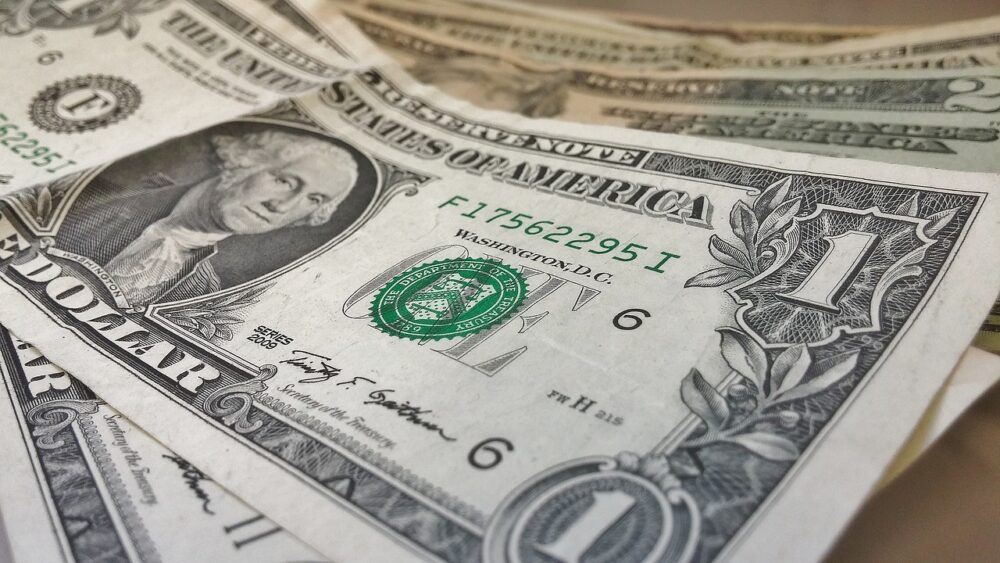How The Strong Dollar Can Affect Your Investments And Finances In 2023

Former United States Treasury Secretary John Connally once told member countries during a G-10 meeting, that the dollar “is our currency, but it’s your problem”.
As the world’s reserve currency, the US dollar should be watched carefully, and taken into consideration by investors.
In September 2022, the US Dollar Index reached its highest strength in 20 years, when measured against six other major currencies. This was after the rate hikes in the US due to high inflation & after Russia announced it was escalating its war against Ukraine, and it saw huge losses for Bond & Stock Investors.
In its December 14, 2022 Federal Reserve Press Release, the US Central Bank has recently hiked interest rates to around 4%, further amplifying the potential returns for those who invest in US dollar denominated assets.
This has further drawn investor traffic away from the pound and into the dollar, thus strengthening it. As an investor these are the basic ways a strong dollar might impact you.
USD Loans & Currency Trades Will Be Affected
It should be noted that the USD is the most prevalent currency in global trade & investments, and is used by many investors & businesses to get loans for their investments. A slight movement in exchange rate would affect loan repayment.
For instance, if you secure a loan in US Dollars from your bank, and as time goes on, the Dollar appreciates against the Pound (or Euro for example), you would end up incurring more costs in servicing the loan. You spend more Pounds in purchasing dollars for the loan repayment.
If your income is in USD, then you are hedged against this risk. But if your income is in local currency, and your debt is in external currency, then you are exposed to currency risk.
The same thing happens to a currency trader. A sudden change in exchange rates may cause you to experience gains or losses, depending on your position whether long or short.
Normally exchange rates don’t move in wildly, but because of the volatility in the markets today, it is possible.
Example, you are trading $150,000 worth of the USD/GBP currency pair and you close your position after the USD/GBP exchange rate reaches 0.6513.
The number of GBP per pip is: 150,000 x 0.0001 = 15
The per-pip value is: 15/0.6513 = 23.03 USD per pip.
Therefore, if the exchange rate had suddenly moved 32 pips before you closed the trade, your potential profit or loss would be: 32 pips x 23.03 = 736.96 dollars.
Most businesses & investors try to hedge their currency risk, especially the multinational corporations that deal in multiple countries. For example, if you are an exporter who exports most of your products in EU, and earn in Euro, then you are exposed to the risk that the Pound goes up or down against the Euro.
Businesses & traders hedge these risks using derivatives or contracts, where they pay some premium to the contract writer to protect against the currency risk. This can be in the form or CFDs or via Futures & Options.
We will take example of CFD contracts here. Traders commonly buy or sell currencies via FCA regulated brokers, which is sort of a derivative contract, to hedge currency risk or speculate on currencies. For example, traders who want to protect against to strength or Euro against British Pound, can buy EURGBP. If it goes up, then you would have made a profit. But if it goes down, then you would have lost money.
Global events such as uncertainty with conflict in Ukraine, and China abandoning its Zero Covid Policy, could make the Dollar even stronger as these shocks could lead to further spike in inflation. Even though currencies like the Euro and Swiss Franc are still stronger than the Dollar, there is reasonable risk that the Dollar could catch up in 2023-24 during uncertain environment.
So, if you deal in multiple geographies, you have to protect against the risk in the loss of value of your money.
Stocks of UK Multinationals could Appreciate
For many of the large companies in the UK, the strong dollar is seen as good (if the demand stays strong) because it has a positive impact on them, due to lower costs. Some of them constitute the FTSE 100 index, and get bulk of their revenues from their oversea subsidiaries.
A weak pound improves the profits in local currency terms, as most of the foreign currencies they earn will be converted back into Pounds.
You can look for companies that have a large export base & strong income support which is not much affected by recession risks. Check the balance sheet of the companies, and check where they get their revenues from. Then check if they have the pricing power & demand for their goods.
As an example, UK firm- Ultra Electronics (ULE) gets more than 60% of its revenue from North America, which translates to higher earnings, when the strong dollar is converted to Pounds.
Multinational American Company Stock Lose Value
Unlike the stocks of big UK companies that appreciate in an environment of strong dollars (in local currency terms, but not always in USD terms), reverse is the case for large US companies that have subsidiaries overseas. They experience reduced earnings overseas, when converted to dollars.
Against this backdrop, the profits of those companies would be negatively affected, and if you hold their stocks, your portfolio will see a drop.
According to the S&P500 Global Indices report, revenue by geography shows that 71% of the Index’s earnings is domestic while only 29% is made overseas. Although some US companies like the Oil companies have benefitted from the Strong Dollar according to this report.
Big domestic-oriented firms that make up the S&P 500 like JPMorgan, UnitedHealth Group, Home Depot, and Berkshire Hathaway; normally experience lower risks compared to their global counterparts.
You Spend More on Energy and Gas
A strong US dollar has massive effects on the price of oil, because the US currency is used in pricing barrels of oil across the globe.
Today, the high price of gas at the pumps can be attributed to the strong dollar, as it costs more to buy imported oil.
This has caused the UK government to issue new licenses for oil exploration in the North Sea, so as to reduce imported inflation in form of high oil prices.
With winter approaching there’s also a dire need for gas, to warm the home. Many of these commodities are also priced in US dollars, so they get more expensive.
Imported inflation creeps in this way, as high energy prices cascade to higher cost of goods on the shelve. This is due to higher transportation and production costs, before these items reach the shelves.
UK Bonds Lose Value
The war in Ukraine has led to geopolitical risks in Europe and caused significant volatility in the markets. Inflation of essential commodities like gas and oil has soared considerably.
Lots of investors are withdrawing their investments in the region, and looking for safe havens, which they’ve found in US dollar denominated bonds.
Even emerging market countries that issue Eurobonds to woo international investors, have seen their credit rating fall. This is because a strong USD coupled with high inflation, has negatively affected their economies, and made some of them seek debt restructuring.
As Foreign Portfolio Investment (FPI) flows out of the UK, the price of its bonds could decline because of the fall in demand. This means higher yields for new bond investors.
Your Gold Portfolio Could Take a Hit
There is an inverse relationship between the gold price and the US dollar, because the commodity is usually denominated in US Dollars globally.
Gold is generally linked to real rates. If the real rates in the US goes up, then the Gold would fall in value against the USD.
Although, Gold can offer hedge in your local currency. For example, if the GBP goes down in value against USD, the Gold price being in USD, would still likely be up In local currency terms.
But in general, when the dollar becomes stronger relative to other foreign currencies, the price of gold would fall in US dollar terms since the commodity is priced in the US currency.
To buy gold in other currencies would become more expensive, and this would make buyers shun the commodity as the price moves higher in local currencies.
On the other hand, when the US dollar depreciates in value, the value of gold would appreciate as it would become less expensive to buy in other currencies. The demand for the commodity from local investors would now increase.
Gold is also seen as a place of protection when the monetary policies are loose. So when the global Central banks are increasing the Money supply, gold prices soar.
Other Commodity Prices might still Appreciate
Unlike gold, the relationship between US dollars and commodities such as wheat, soybeans, and oil are not straightforward.
Most commodities are traded based on supply & demand. If the Global demand stays strong, the despite the strong USD, commodities can trade higher.
Hospitality REITs Could Appreciate
The strong dollar gives a favorable position to Americans who are visiting the United Kingdom, for holidays. The tourism industry in the UK is huge.
According to Visit Britain 2021 Inbound data, there were 6.4million visits to the UK in 2021, with 5.6 billion Pounds spent by the visitors.
With dollars in their hands, their purchasing power is high while in a foreign country. In overseas countries with a strong dollar, they have the advantage of buying more things after converting the dollars to the local currency.
On the flip side, a strong dollar would hurt the tourism industry of the United States, as this would drastically reduce foreign travelers. The reason is due to the high cost of converting their local currencies to dollars.
Real estate Investment Trusts (REITs) that hold vacation properties like hotels and resorts in the UK could see an appreciation in their earnings.
Bottom Line
Many countries, in order to curb the effect of rising dollars against their currencies, are also hiking their interest rates, to stabilize their currencies. However, the US Dollar has continued to be the most dominant currency in international trade.
As an investor, having an understanding of this fact would go a long way in helping you plan and manage your investments, in the face of continuous dollar appreciation against your currency and other currencies.







